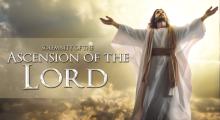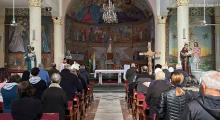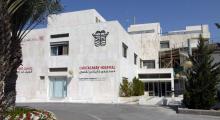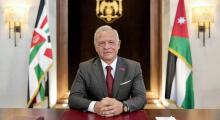Issued by the Catholic Center for Studies and Media - Jordan. Editor-in-chief Fr. Rif'at Bader - موقع أبونا abouna.org
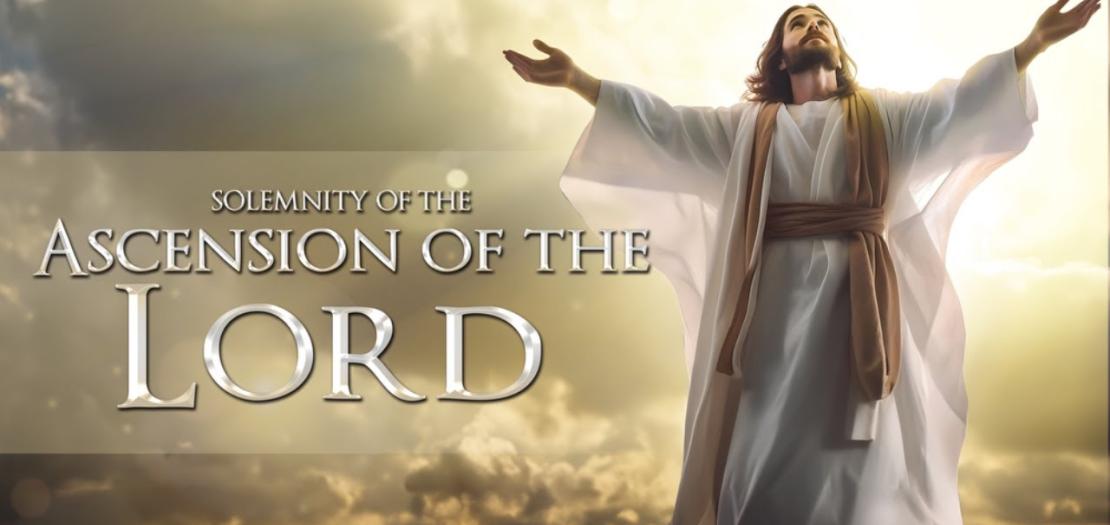
Following is the text of the meditation marking the Feast of the Ascension of the Lord by His Beatitude Cardinal Pierbattista Pizzaballa, Latin Patriarch of Jerusalem, dated May 27, 2025:
The Gospel of Luke re-reads the earthly story of Jesus by viewing it as a great journey that has a specific destination, namely Jerusalem.
It is a physical destination, but above all it is a spiritual and theological destination: Jerusalem is the place where one ascends to worship God; and Jesus, once he has ascended to Jerusalem, will offer true worship to the Father, his own life, which he offers as a gift of love for the salvation of all people.
By the sin of man, this sacrifice will be bloody and take on the features of a painful death on the cross. Jesus’ journey to Jerusalem leads him to take this step, of which he is well aware and in the face of which he hardens his face and makes the firm decision to go all the way. (Luke 9:51)
However, today’s passage, (Luke 24:46-53) the Solemnity of the Ascension, tells us that Jerusalem is in fact not the last and final destination for Jesus, but rather the gateway that allows him to go further, to return to the Father, to ascend to heaven: his journey therefore does not end in Jerusalem, because the true destination of Jesus’ journey is the Father. From him he comes and to him he returns. (cf. John 13:3)
The evangelist Luke reports that Jesus is with his own, in the Upper Room, where he speaks his last words to teach the disciples. But the ascension does not take place there, in Jerusalem.
Luke writes that Jesus “led them [out] as far as Bethany”. (Luke 24:50) The emphasis of this sentence is not so much on Bethany, which remains in the background of the narrative, but on the fact that Jesus leads his people out of Jerusalem. It does not matter whether the destination of their journey is very close to the city, the only important thing is that it is outside.
Why this emphasis?
Because from this moment on, Jesus’ journey to Jerusalem continues in his disciples. They too must set out, harden their faces and decide to go with Jesus to the place where they will lay down their lives.
In today’s Gospel, Jerusalem remains the protagonist who returns three times. Each of these three times is linked to a movement of the disciples. Jerusalem is the place to which the disciples return (“they returned to Jerusalem with great joy.”(Luke 24:52)
It is the place where the disciples stay (“but you stay in the city until you are clothed with power from on high” (Luke 24:49). It is the place from which the disciples are to set out (“beginning from Jerusalem.” (Luke 24:47)
They return to Jerusalem to draw new life from the mystery of Easter. They stay in Jerusalem to await the gift of the Father, the Holy Spirit, who brings Easter to life in them and among them. They leave Jerusalem again to pass on this gift to all, just as they have received it.
So, Jesus’ journey is not over. It continues to the Father, but not even then can it be said to be finished.
It will only end when every person is on the way to the Father, where he is waiting for us.
But for this to happen, his disciples must also set off.
The disciples are to proclaim the great newness of the risen Lord to all peoples, no one excluded, through word and life “Thus it is written that the Messiah would suffer and rise from the dead on the third day and that repentance, for the forgiveness of sins, would be preached in his name to all the nations”- Luke 24:46-47), which will enable all people to return to the Father with conversion and forgiveness of sins.
For the disciples, every place will be Jerusalem, will be the place where, like their Master, they will be called to lay down their lives. And like their Master, they will experience that Jerusalem will also be a door for them, the open door through which they can return to the Father.
+ Pierbattista


